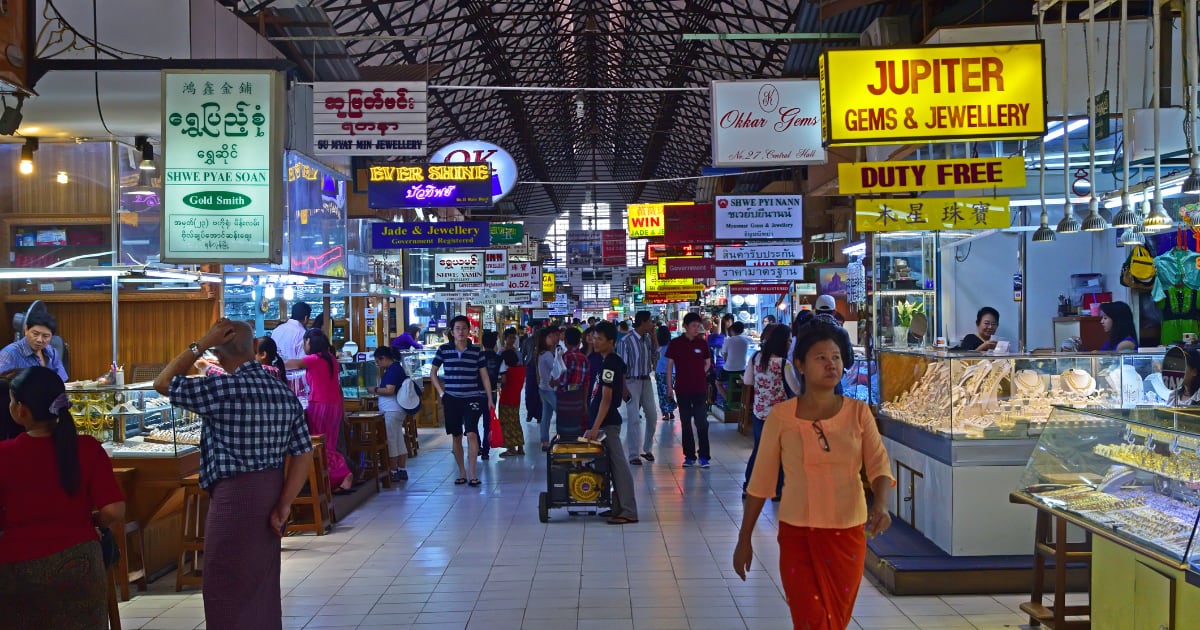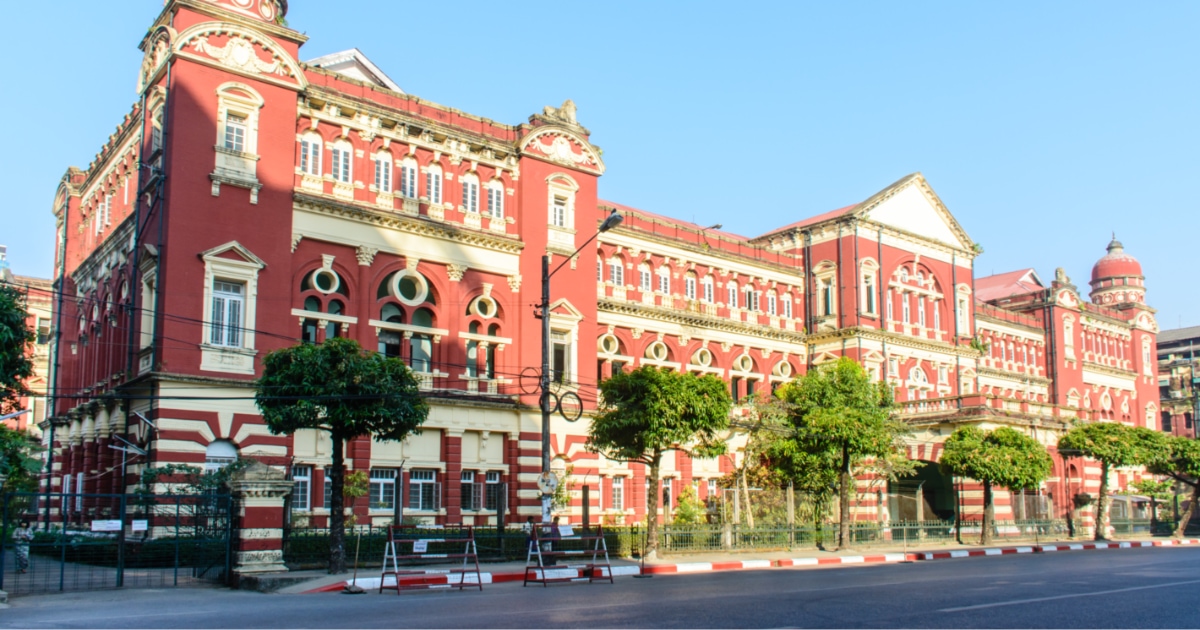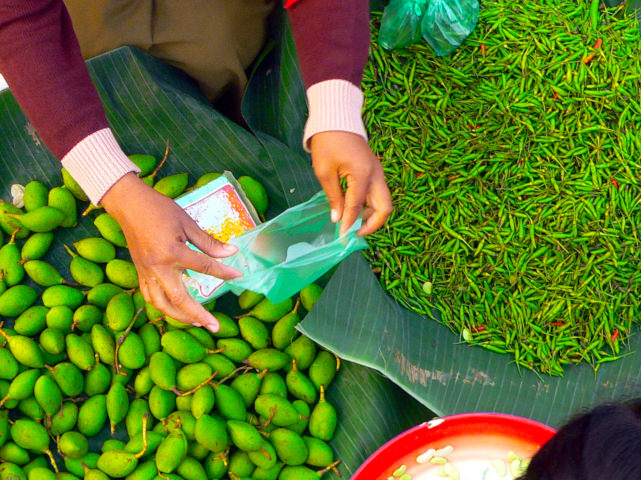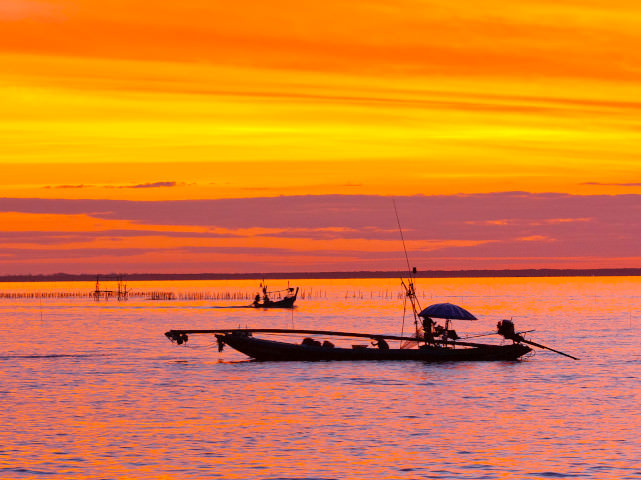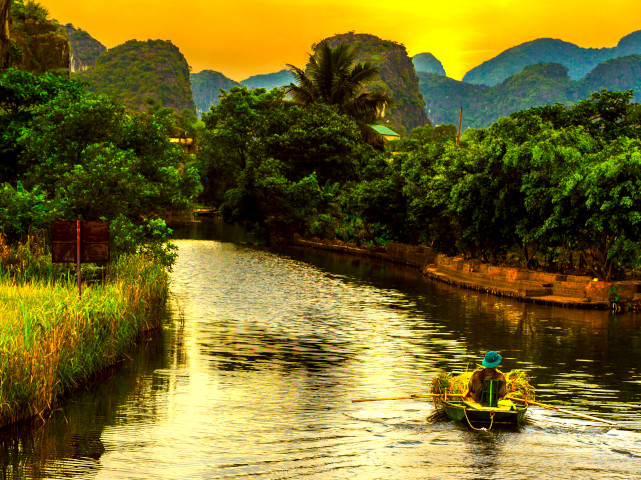Myanmar Highlights
Download PDF | Download word version
According to the Ministry of Commerce, in July 2019, Myanmar exported over 29,000 tons of rice to China through Myanmar-China border trade camps, an increase of over 3,000 tons from June 2019. From 27 July 2019 to 2 August 2019, Myanmar exported more than 8,000 tons of rice, including over 7,300 via Muse 105th mile trade zone, approximately 500 tons via Chin Shwe Haw trade camp, and over 160 tons via Loijel trade camp. For the first ten months of the 2018-2019 fiscal year, Myanmar exported over 400,000 tons of broken rice amounting to US$100 million to 36 counties, with over half the total tonnage being exported to Belgium. (Source: https://elevenmyanmar.com/news/over-29000-tons-of-rice-exported-via myanmar-china-trade-camps-in-july, 21 August 2019)
MYANMAR ONLINE PROPERTY PORTAL RAISES US$3 MILLION IN SERIES B FUNDING
One of Myanmar’s largest online property portals connecting buyers, renters and sellers, ShweProperty.com, has raised US$3 million in a Series B round of funding. The aim of the funding is to increase the company’s business operations and streamline its home purchase system. ShweProperty.com was established in 2011, and currently has over 100,000 active listings. The second round of funding was led by Emerging Markets Investment Advisors, a Singapore-registered private equity fund manager, with participation from 500 StartUps, Simon Baker (ex-chairman of iProperty and Mitula Group), and the family office of Dinh Thi Hoa (chairwoman of Galaxy Media and Entertainment Vietnam). Existing investors include Vostok New Ventures (its Swedish Depository Receipts are listed on Nasdaq Stockholm) and a UK-based investment fund. According to Kevin Goos, managing director of ShweProperty, “the latest round of funding will be used to accelerate all areas of our business operations, sales and marketing, product development, and includes our advanced transaction model that streamlines the home buying process for consumers”. (Source: https://www.mmtimes.com/news/local-property-portal-raises-3m-second-round-funding.html, 18 August 2019)
INDIA APPROVES FLIGHTS BETWEEN IMPHAL AND MANDALAY IN CONCEPT
India’s Civil Aviation Minister Hardeep Singh Puri has approved the idea of establishing a flight service between Imphal, India and Mandalay, Myanmar. Hardeep Singh Puri has asked the Myanmar government to hold discussions with airlines interested in operating such international flight service. Air KBZ, a privately owned Myanmar-based airline, has expressed their intention to fly between the two cities. (Source: http://mizzima.com/article/india-talk-airlines-interested-opening-imphal-mandalay-route, 21 August 2019)
MYANMAR TO CONTINUE BUILDING COAL-FIRED PLANTS DESPITE OPPOSITION
Myanmar will continue to construct coal-fired plants so as to address the nation’s energy shortage, despite opposition on health and environmental pollution grounds. “We’re planning to go ahead with our plan to build coal-fired plants in partnership with private companies”, Ministry of Electricity and Energy deputy minister U Tun Naing stated on 16 August 2019 at Amyotha Hluttaw, the upper house of Myanmar’s bicameral legislature. Under Myanmar’s current energy mix plan, 33% of energy will be supplied by coal, 38% by hydropower, 20% by natural gas, and the remaining by renewable energy sources including solar power. Under Myanmar’s 2014 Energy Master Plan, it was envisaged that coal will constitute 30% of the energy mix by 2030, hydropower will represent 57%, and the remaining will be supplied by natural gas and renewable energy. However, coal plants in Myanmar have encountered various challenges due to villagers’ concerns regarding their health effects. In 2018, the government withdrew a US$2.8 billion coal-fired plant to be constructed near Hpa-An, the capital of Karen State. In 2014, Tigyit power plant, Myanmar’s first coal-fired plant, closed as it had ignored a waste management request issued by the Ministry of Electricity and Energy. The plant recommenced operations in 2015 as it pledged to upgrade the plant and carry out required waste management procedures. Although coal continues to be an important source of feedstock for power plants, the use of coal has gradually decreased. Critics of coal-fired plants have advocated for Myanmar to instead take advantage of its rich hydropower sources. U Ko Ko, Sagaing Region’s Amyotha Hluttaw representative for constituency No. 8, stated “we can’t be choosy about where the electricity comes from especially when it can benefit the country and people. It is not the time to say no to coal when only 35pc of our country’s population have access to electricity”. Coal is an important source of feedstock in ASEAN, and supplies nearly 50% of feedstock needs in Laos, 41% in Indonesia and Malaysia, 20% in Thailand and 45% in Cambodia. (Source: https://www.mmtimes.com/news/myanmar-continues-coal-plant-plans.html, 20 August 2019)
MYNAMAR’S FIFTH OFFSHORE NATURAL GAS FIELD TO BOOST DOMESTIC CONSUMPTION AND EXPORTS
Currently, there are four offshore natural gas fields in Myanmar: Yadana, Yetagon, Zawtika and Shwe projects. The total production capacity of the three projects in Muttama/Martaban offshore (Yadana, Yetagon and Zawtika projects) is 1,280 million cubic feet per day, and the total production capacity of the Shwe project in Rakhine offshore is 500 million cubic feet per day. Despite the excess amount of natural gas produced in Myanmar, domestic consumption under the joint-venture contracts are restricted to 430 million cubic feet per day. Another limitation is the long period between the discovery of natural gas reservoirs and the commencement of extraction. For example, extraction at the Yadana project commenced six years after testing and 16 year after discovery, extraction at the Yetagon project commenced eight years after the natural gas field was discovered, and production of gas at Shwe project commenced nine years after the project commenced. A-6 block project will be the fifth offshore natural gas field in Myanmar. In January 2016, it was first announced that a natural gas reservoir had been discovered in the block. A-6 block project is the first ultra-deep-water project in Myanmar, and in light of the technological and operational challenges, the project will require significant capital investment and human resources. The A-6 joint venture project consists of MPRL E & P Pte Ltd. as operator, Australia’s Woodside Energy as technical operator for the exploration-appraisal phase, and France-based Total E&P Myanmar as a joint operator for the development phase. The companies have stated that the natural gas extracted will be used for both domestic consumption and export purposes. (Source: https://consult-myanmar.com/2019/08/21/myanmars-offshore-oil-fields/, 21 August 2019)
THAI AND INDIAN COMPANIES SELECTED TO SUPPLY ELECTRICITY AND GAS FOR NEW YANGON CITY PROJECT
On 20 August 2019, New Yangon Development Company (“NYDC”), the main developer of the New Yangon City project, announced that two foreign companies had been selected to supply and distribute electricity and natural gas for the project. In 2018, the Yangon government formed NYDC to develop New Yangon City, a new city to be constructed on 20,000 acres of land on the west bank of the Yangon River across from downtown Yangon. The two foreign companies selected are (i) Thailand’s PTT Group, comprising PTT, PTTEP and GPSC, for the supply and distribution of power, and (ii) India’s Indraprastha Gas Limited and Gail Consortium (“IGL Consortium”) for the supply and distribution of natural gas. They were chosen out of 77 expression of interest submissions from 45 companies/consortiums. U Phyo Min Thein, Yangon Region Chief Minister, stated “it is expected that the new city will create 2 million jobs”. However, approval from the Union government for the project is still pending. The two foreign companies must undertake preliminary work and feasibility studies for the preparation of pre-project documents (which include technical specifications, a financial proposal and a business model) which will be used for carrying out the NYDC Challenge. Under the NYDC Challenge, if a second party challenges the two foreign companies with a lower bid, the two foreign companies must withdraw from the contract or offer similar terms. If the two foreign companies withdraw from the contract, the second party is awarded the contract and must reimburse the two foreign companies for all expenditures incurred in relation to the preparation and submission of the pre-project documents. The project has been the subject of controversy, including in respect of its alleged flood-prone location (however, NYDC has stated that a flood-risk assessment was carried out), and accusations against the Yangon Regional government for abuse of power as it transferred US$6.5 million to NYDC without parliamentary approval. (Source: https://www.irrawaddy.com/news/burma/thai-indian-firms-selected-supply-power-gas-myanmar-new-city-near-yangon.html, 21 August 2019)
MYANMAR PREPARED TO SIGN FRAMEWORK AGREEMENT WITH CHINA ON CROSS-BORDER ECONOMIC COOPERATION ZONES
The Myanmar government is prepared to sign a framework agreement with China on the establishment of cross-border economic cooperation zones, facilitating China’s infrastructure plans in Myanmar under its Belt and Road Initiative (“BRI”). According to the assistant permanent secretary and spokesperson for the Ministry of Commerce, U Khin Maung Lwin, “the related government ministries have already reviewed a framework agreement proposal submitted by China… We will send the proposal back to China. Our side is preparing to sign [a framework agreement] very soon”. The framework will provide for the establishment of a bilateral joint committee for the implementation of the economic cooperation zones, the assignment of management roles for the economic cooperation zones, and types of incentives for investors. In 2018, the Myanmar and Chinese governments signed a memorandum of understanding on the China-Myanmar Economic Corridor (“CMEC”), which will connect Yunnan Province in China to Mandalay to Yangon to the Kyaukphyu Special Economic Zone in Rakhine State. At the first implementation meeting of the Economic Cooperation Zones Central Committee in 2018, the Myanmar government approved three sites along Myanmar’s border with China as economic cooperation zones. The zones are located in Kanpiketi town in Kachin State’s Special Region One, Chinshwehaw town in Shan State’s Laukkai Township, and in Shan State’s Muse Township. Chinshwehaw and Muse are major trading hubs for the two countries, and Kanpiketi regularly trades with China. In July 2019, the Myanmar government held its third coordination meeting of the Border Economic Cooperation Zones (“BECZ”). At the July meeting, the chair of the Central Committee for the Establishment and Implementation of Myanmar-China BECZ and the Union minister for commerce, Dr. Than Myint, stated that China has almost completed constructing the infrastructure for the three economic cooperation zones, and Myanmar needs to conduct preliminary negotiations on the use of the land and transportation. The two countries still have to negotiate the demarcation of borders. In addition, Myanmar must facilitate the infrastructure projects by improving and constructing new roads in northern Shan State so as to develop and enhance links with the economic cooperation zones. Industrial zones will also be constructed close to the economic cooperation zones. (Source: https://www.irrawaddy.com/news/myanmar-set-ink-pact-china-border-cooperation-zones.html, 15 August 2019)
MYANAMAR-JAPAN-U.S. FORUM ON FOSTERING RESPONSIBLE INVESTMENT – DAW AUNG SUU KYI CONFIDENT OF INCREASED FOREIGN INVESTMENT FROM US AND JAPAN
On 20 August 2019, the opening ceremony of the Myanmar-Japan-U.S. Forum on Fostering Responsible Investment was held in Yangon. Following the ceremony, the Japanese and United States’ embassies announced in a joint press release that the two countries “stand with Myanmar to promote responsible, quality and ethical investment for the benefit of the people of Myanmar and for the country’s economic development”. Myanmar’s economy has grown over recent years, with GDP increasing from US$8.9 billion in 2000 to US$71 billion in 2018, making it one of the fastest growing ASEAN economies. FDI into Myanmar amounted to approximately US$2.3 billion in the first half of 2019, compared to US$1.3 billion in the corresponding period in 2018. The NLD has implemented various reforms since entering office in 2016, including the new Myanmar Investment Law 2016, the new Myanmar Companies Law 2017, forming the Ministry of Investment and Foreign Economic Relations, and setting out the Myanmar Sustainable Development (2018-2030). At the forum, Daw Aung San Suu Kyi stated “we are confident that these and other reforms will prove fruitful in attracting increased foreign investment—particularly from Japan and the U.S”. Following the liberalisation of Myanmar’s economy in 2010, Japan has invested in various development projects in Myanmar, from financial sector developments to railway, road and energy networks. Most notably, the first Japan-Myanmar public-private initiative in Myanmar, the Thilawa Special Economic Zone (“SEZ”) has been regarded as a major success. Since its launch in 2015, over US$1.6 billion has been invested into the Thilawa SEZ as of April 2019. A total of 108 companies from 19 countries have invested into the zone as of June 2019. In respect of the United States, it has fostered Myanmar’s responsible development through technological solutions, in particular investments in the energy sector including by General Electric and Chevron. Currently, Ford Motor Company is tapping Myanmar’s growing domestic car market and creating job opportunities in Myanmar. Overseas Private Investment Corporation, the US government’s development finance institution, is providing a loan of over $250 million to Apollo Towers, a major telecom tower company in Myanmar, for the construction of more than 1,800 towers. (Sources: https://www.irrawaddy.com/news/burma/us-japan-vow-back-responsible-investment-myanmar.html, 20 August 2019; and https://mm.usembassy.gov/joint-press-release-from-the-embassy-of-the-united-states-and-the-embassy-of-japan/, 20 August 2019)
THAI LIFE THE FIRST ASEAN INSURER TO ENTER THE MYANMAR MARKET
Following the opening of Myanmar’s insurance industry to international players in 2019, Thai Life Insurance PCL will become the first ASEAN insurer to enter the industry. On 16 August 2019, Thai Life Insurance entered into a joint venture agreement with Yangon-based Citizen Business Insurance (“CB Insurance”) for the offering of new insurance products in Myanmar. The joint venture will be owned as to 65% by CB Insurance and 35% by Thai Life Insurance. Chai Chaiyawan, president of Thai Life Insurance, noted that CB Insurance will be able to leverage Thai Life Insurance’s actuarial and managerial expertise, and product distribution channel development. According to CB group chair U Khin Maung Aye, “the partnership will see Thai Life offer more life insurance products in Myanmar leveraging on its technology and market knowhow”. U Khin Maung Aye further stated “we aim for Myanmar people to have good money-saving and investment practices by offering these [new life insurance] products”. The joint venture will market insurance products that are in demand, in particular savings and investment-linked insurance products. According to U Khin Maung Aye, a major challenge for insurers is that most of Myanmar’s population have little knowledge as to their health and finances. However, it is expected that Myanmar’s insurance market will grow and become more sophisticated as Myanmar’s capital markets mature. (Sources: http://www.mizzima.com/article/thai-life-insurance-company-enters-myanmar, 18 August 2019; and https://www.mmtimes.com/news/cb-insurance-and-thai-life-signs-jv-agreement.html, 21 August 2019)
TENDERING PROCESS FOR THE UPGRADE OF KAWTHONG AIRPORT RE-COMMENCES FOLLOWING WITHDRAWL OF WINNER
In August 2019, the tendering process for the upgrade of Kawthong airport in Tanintharyi Region commenced. Myanmar’s Department of Civil Aviation (“DCA”) issued requests for proposals, which must be submitted by November 2019. The entity carrying out the project must be a special purpose company held at least 65% by Myanmar citizens. The project must be structured either as a private investment by the company or as a public-private partnership between the company and the DCA. The project terms cover the construction of new airport facilities such as runways, terminals, airport aprons, control tower, warehouses and parking. The successful bidder may run the airport pursuant to an upgrade, operate and maintenance contract with a 30-year term period (and an additional 10-year extension option). The commencement of the tendering process in August follows Golden Myanmar Airlines Public Co Ltd withdrawing from the project after being successful in a previous tendering process valued at US$36 million. DCA deputy director general U Ye Htut Aung subsequently stated that the project will continue even without private investors. Kawthoung, situated at the southern tip of Myanmar, is the entry point to the Myeik Archipelago, a popular island destination hosting 300,000 tourists annually. The government has identified 14 airports in Myanmar (including Kawthoung airport) to undergo upgrades so as to encourage tourism and enhance regional development. In respect of the estimated US$40 million upgrade of Heho airport in Shan State, the project will be undertaken by a joint venture of KBZ Group (65%) and Toyota Tsusho Co (35%). Hinthar Group and Bangkok Aviation Services Enterprise will carry out the US$20 million upgrade of Mawlamyine airport in Mon State. (Source: https://www.mmtimes.com/news/dca-starts-tender-process-kawthoung-airport-upgrade.html, 16 August 2019)
rice exports to China
coal-fired plants in Myanmar
Framework agreement on the establishment of cross-border economic cooperation zones
ShweProperty fundraising online property portal Myanmar
flights between Imphal and Mandalay air KBZ
Myanmar China rice imports 2019
A-6 block offshore natural gas fields in Myanmar
Myanmar power sector
NYDC New Yangon City project foreign investment
China-Myanmar Economic Corridor Belt and Road Initiative
Japanese investment Thilawa Special Economic Zone SEZ
US-Myanmar FDI Ford and Overseas Private Investment Corporation
Foreign investment in Myanmar’s insurance industry
Upgrade of airports in Myanmar tendering Kawthong
coal fired power plant in myanmar
This newsletter is for information purposes only. Its contents do not constitute legal advice and it should not be regarded as a substitute for detailed advice in individual cases.
Transmission of this information is not intended to create and receipt does not constitute a lawyer-client relationship between Charltons and the user or browser.
Charltons is not responsible for any third party content which can be accessed through the website.
If you do not wish to receive this newsletter please let us know by emailing us at unsubscribe@charltonslaw.com




